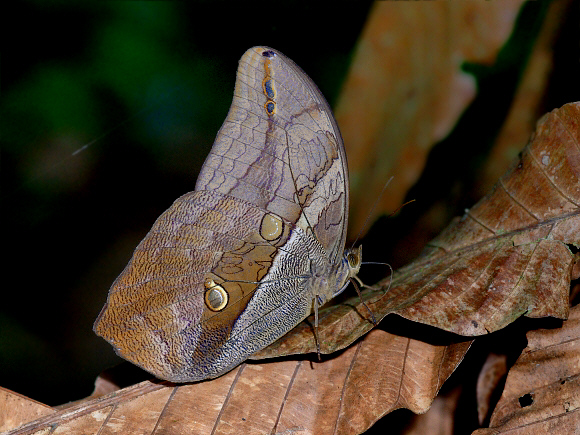 Eryphanis automedon, Rio Cristalino, Brazil – Adrian Hoskins
Eryphanis automedon, Rio Cristalino, Brazil – Adrian Hoskins
Introduction
The Morphinae comprises of about 140-150 neotropical species, of which 93 are included within the tribe Brassolini. Of these 73 are placed in the Brassolina – a subtribe including the genera Brassolis, Blepolenis, Caligo, Caligopsis, Catoblepia, Dasyophthalma, Dynastor, Mielkella, Eryphanis, Penetes, Mimoblepia, Opoptera, Opsiphanes, Orobrassolis and Selenophanes. All Brassolines are crepuscular or nocturnal in behaviour, although a few species also fly by day in the darkest areas of the forest.
The genus Eryphanis comprises of 7 known species variously distributed from Mexico to Bolivia and Paraguay. Some such as aesacus and bubocula closely resemble Caligo species, but the majority are similar to automedon, having angular hindwings with relatively small ocelli.
Eryphanis automedon is distributed from Nicaragua and Guatemala to Bolivia and Brazil.
Habitats
This species is found in rainforest and humid deciduous forest, at elevations between sea level and about 500m.
Lifecycle
To be completed.
Adult behaviour
During daytime Eryphanis rest among dead leaves or low down on tree trunks. They are normally only seen at dawn when they visit rotting fruit on the forest floor.
